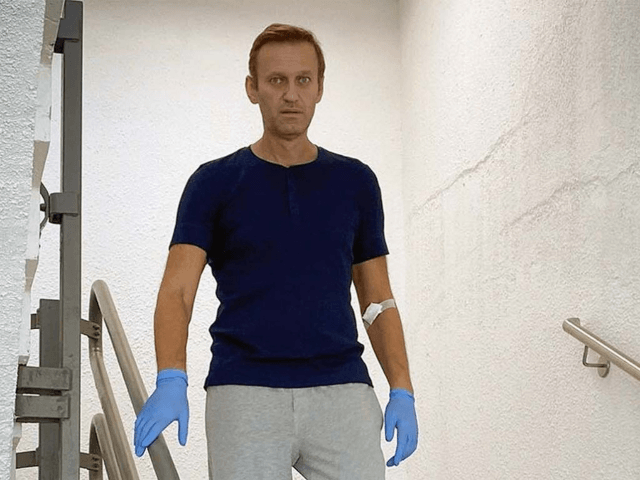Authorities in Russia seized the apartment and froze the bank accounts of dissident Alexei Navalny days after his release from a German hospital after doctors believe he was poisoned with a Russian chemical agent, his spokeswoman revealed on Thursday.
Kira Yarmysh claimed that court marshals arrived at Navalny’s three-bedroom apartment in southeastern Moscow to seize the property after the hospitality magnate lost a million-dollar court ruling in favor of catering magnate Yevgeny Prigozhin, known for his close ties to the Kremlin. Authorities also froze his bank accounts.
The seizure took place less than a year after Navalny and his close associate were ordered to pay out 88 million rubles ($1.1 million) in damages for allegedly blaming Prigozhin for a dysentery outbreak among Moscow schoolchildren linked to contaminated lunches provided by his company.
“Instead of siding with the affected children, the court sided with Prigozhin,” Yarmysh explained in a video on Twitter. “As a result, they seized the assets and the apartment of a person who was in a coma. This means the flat cannot be sold, donated or mortgaged.”
Yarmysh added that the $1 million ruling was the “amount [the court] estimates in lost profit for Moscow Schoolchild because of losing a contract to provide food.”
Приставы наложили арест на квартиру Алексея Навального pic.twitter.com/DwA39HSpzZ
— Кира Ярмыш (@Kira_Yarmysh) September 24, 2020
Navalny, an anti-corruption campaigner who has become the Kremlin’s most prominent internal opponent, fell gravely ill on a flight to Moscow last month after being poisoned with what laboratories in Germany, France, and Sweden have identified as the chemical weapon Novichok. He was eventually taken Germany, where his condition stabilized and he began making a recovery. He is currently undergoing rehab and intends to return to Russia as soon as possible.
Vladimir Putin and the Kremlin are widely suspected to be responsible for the attack given Navalny’s prominence and international profile. He is also the latest victim of the chemical weapon Novichok, which has surfaced in other cases of alleged poisoning of Russian dissidents in recent years.
Last week, Kremlin spokesman Dmitry Peskov denied the state was involved, citing too many “absurd inconsistencies” for the allegations to be taken seriously.
“The amount of the absurd and the number of questions keeps growing every day,” he said at a press conference. “The only thing that could shed some light on what happened is the exchange of information, exchange of biological materials, exchange of evidence and joint work, including that of medics, and so forth, on analyzing the situation.”
Follow Ben Kew on Parler, Facebook, or Twitter. You can email him at bkew@breitbart.com.

COMMENTS
Please let us know if you're having issues with commenting.